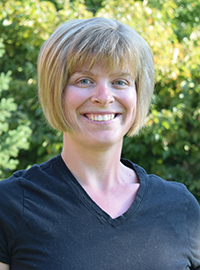 Iowa State University’s mechanical engineering advising team has developed a virtual space that they hope will serve as a way for students to connect with one another during an era of social distancing and remote learning.
Iowa State University’s mechanical engineering advising team has developed a virtual space that they hope will serve as a way for students to connect with one another during an era of social distancing and remote learning.
Mindy Heggen, mechanical engineering (ME) academic advisor, came up with the idea of creating a group using Microsoft Teams, a software program designed for groups of people to collaborate remotely on projects. Heggen called the group “Like ME” and it was developed specifically for undergraduate ME students.
“The Like ME Teams was created to offer a space for students to connect socially with the department and connect with others in the same courses to set up study groups,” Heggen said.

The idea first came about when the COVID-19 pandemic caused university personnel to adapt classes and other operations so that adequate social distancing can be maintained between individuals to prevent further spread of the virus. Heggen felt that a virtual space, such as Teams, might help to emulate the regular, face-to-face interactions that students would have during a typical school year. For students who can struggle with face-to-face interactions or even just meeting other people, this digital environment can be an easier way for them to connect with peers they might not otherwise meet. She cited research which suggests that greater social connectivity can lead to academic success as another reason for establishing this group.
Like ME is intended to not only be an educational tool but also a social one, as a way for students to connect on common interests outside of the classroom. Team members have access to Jackbox which allows them to play a vast library of video games with one another. Additionally, some members participated in a fantasy football league during the fall semester. The group is free to join for all undergraduate ME students.
Heggen said that finding the time to develop the group, while balancing all of her other work responsibilities, was one of the biggest obstacles she encountered along the way. To alleviate this, a student peer mentor has been assigned to manage the social piece of the group during the spring semester.
Students have provided positive feedback about their experience in the group. Heggen cited that some students were able to raise their midterm grades because of the academic support they received from their peers through the group. She said she’s also heard from students outside of ME who have indicated they think a similar platform within their major department would be helpful. She will present her idea and how she developed it to other advisors in the College of Engineering later this semester.
“Our advising team’s creativity never ceases to amaze me,” said Caroline Hayes, ME department chair and Lynn Gleason Professor of Interdisciplinary Engineering. “It is so important for our students’ success and well-being to safely connect with their classmates. I think Like ME will be helpful to students even after we can all safely gather in-person again.”
Based on the success of the initial roll out, Heggen and the rest of the advising team echo Hayes’ sentiment that Like ME might continue to be a worthwhile tool for the students even in a post-COVID-19 world.
“It is a unique way to meet students where they are physically. In the cold winter and rainy spring, they can meet virtually to play games that they enjoy, such as Among Us. It will help with staying socially connected over breaks, summer, co-ops and internships,” Heggen said.